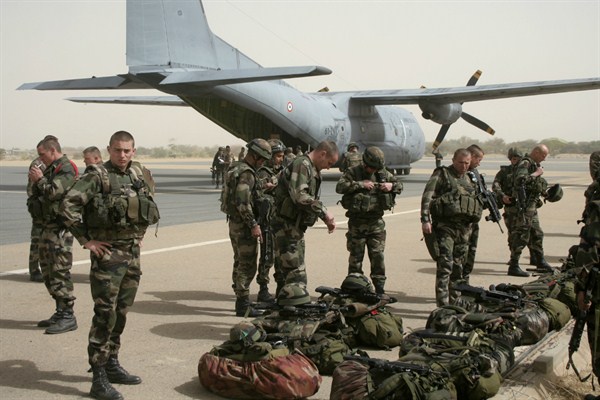More than any other outside power, France is currently investing the most military and political resources to combat terrorist groups in West Africa and the wider Sahel. Driven by a perception of a clear and present danger, French security policy in the region has undergone a fundamental shift in recent years, but not in the direction that many policymakers in Paris had hoped at the beginning of the century.
Instead of slowly decreasing its military presence and political involvement in its former colonies’ internal affairs, France has stepped up both amid new realities and interests. Defense Minister Jean-Yves Le Drian outlined those in a speech in September that heavily emphasized stability. “To preserve the security and defense interests of France also means to work on the stability of our strategic environment,” Le Drian declared. “It is a fact that this stability is threatened, including by crises that appear falsely distant—because their consequences know no borders.”
The spearhead of France’s African security policy is Operation Barkhane, a full-fledged anti-terrorist combat mission that is currently France’s largest external military operation, with about 3,500 soldiers stationed across five countries spanning the Sahel: Burkina Faso, Chad, Mali, Mauritania and Niger. Operation Barkhane shows that President Francois Hollande has not only put regional stability on top of his foreign policy agenda, but is also willing to put French soldiers on the ground to back it up. In total, about 8,000 French soldiers are deployed across Africa.

